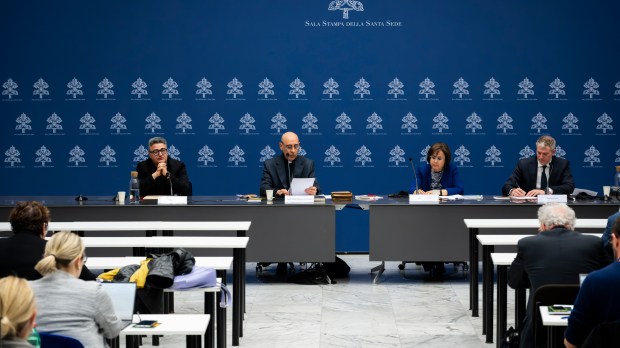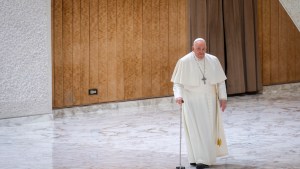Less than four months after the publication of Fiducia Supplicans, the Dicastery for the Doctrine of the Faith published another doctrinal declaration, Dignitas infinita, recalling the Church’s traditional positions on violations of human dignity in all its forms.
Condemnation of surrogate motherhood, euthanasia, abortion, and the abusive exploitation of workers: Dignitas infinita (“Infinite Dignity” in Latin) follows in the tradition of the Catholic Church, linking bioethical and social issues, with numerous references to the magisterium of John Paul II. This doctrinal document is the fruit of several years of maturation. The somewhat arid process is detailed in the first part of the text.
High doctrinal value of declarations
Declarations of this kind have a higher value than other types of document issued by this dicastery (letters, rescripts, “responsum”…). These latter writings generally constitute responses to specific situations raised by bishops. They indicate directions to be taken on sometimes burning issues, such as the prohibition for Catholics to belong to Freemasonry, or the possibility of baptizing children born through surrogacy. However, they do not have the same magisterial value as a declaration.
The Dicastery for the Doctrine of the Faith then published a new document with norms for discerning Marian apparitions and other purportedly supernatural phenomena. The previous document on this subject, published in 1978, did not take the form of a declaration, nor did this new one.

At the press conference at the Vatican for the presentation of Dignitas infinita, Cardinal Víctor Manuel Fernández, Prefect of the Dicastery for the Doctrine of the Faith, explained that the formal nature of the “declaration” gives these document a “high doctrinal value,” making them part of the pope’s “authentic magisterium,” to which Catholic clerics and faithful must adhere.
Declarations that reflect tradition and innovation
The meaning of such a document is to “consolidate what the last popes have said on this great theme, and to synthesize the novelty offered by the current pope on this structuring question of classical and contemporary Christian thought.”
The Argentine cardinal explained that the declaration Dignitas infinita is “much more important” than Fiducia Supplicans. Nonetheless, he explained that the text published in December 2023 also had the status of a “declaration,” as it brought a “magisterial innovation on how we understand blessings” in a pastoral light.
No doctrinal statements between 2000 and 2023
The successive publication of two doctrinal declarations is an exceptional event, since 23 years had passed without the publication of a document of such importance. The Dominus Iesus declaration, drawn up by Cardinal Joseph Ratzinger and published on August 6, 2000, in the middle of the summer break, warned against the syncretistic drift of interreligious dialogue.
It was particularly aimed at a segment of Indian Jesuits who were involved in ritual activities linked to Asian religions.
It thus echoed the “Quarrel over rites,” which gave rise to great tension in the Catholic Church in the 17th and 18th centuries. That historical tension led in 1744 to the papacy’s prohibition of “non-Christian rites,” in opposition to the ideas of inculturation or “accommodation” to local cultures proposed by certain missionary congregations.
An increase in declarations after more than two decades
Dominus Iesus foreshadowed a Christ-centered pontificate under Benedict XVI and a reaffirmation of the specificity of Christian proclamation. However its reception may well have had an inhibiting effect on Cardinal Ratzinger’s three successors at the head of the Congregation for the Doctrine of the Faith. No doctrinal statements were published during the terms of office of Cardinals William Joseph Levada (2005-2012), Gerhard Ludwig Müller (2012-2017) or Luis Ladaria Ferrer (2017-2023).
The sharp increase in the production of doctrinal texts is in line with the mandate proposed by Pope Francis to Cardinal Víctor Manuel Fernández when he was appointed prefect of this strategic dicastery on July 1, 2023. In his letter of mission to the new prefect, the Pope urged him to “increase the understanding and transmission of the faith in the service of evangelization, so that its light may be a criterion for understanding the meaning of existence, especially in the face of the questions posed by scientific progress and the development of society.”



